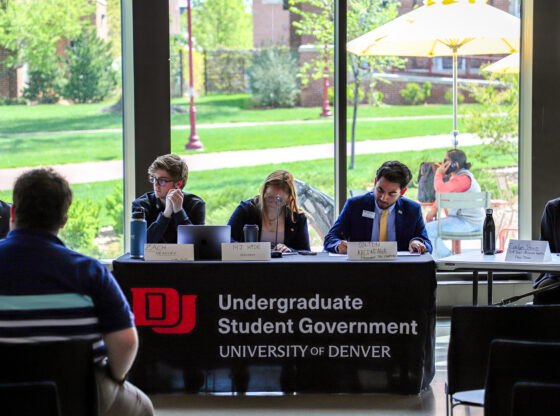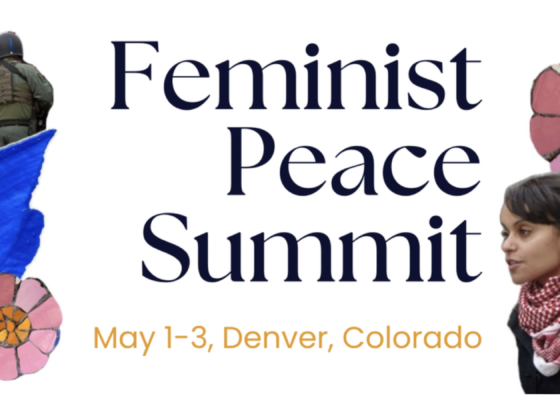Local experts, including a DU alumnus, joined College Republicans on Oct. 25 for a roundtable “down the ballot” discussion. Landon Gates, Shawn Martini, Zach Riley, Andrew Struttmann and Vince Szilagyi are all involved with organizations that hold influence over some of the ballot issues. They gathered in Margery Reed Hall that Thursday to explain a few of the propositions and amendments listed on this year’s Colorado ballot.
Rachel Wagner is a senior public policy and socio-legal studies double major from Brighton, Michigan and current president of College Republicans. She sees great value in events like this. “I think it’s really important to have discussions and be informed about these ballot issues,” Wagner said. “They have the possibility to affect our lives as much if not more than who we elect into office.”
The experts gave basic descriptions of some measures followed by their personal opinions.
These amendments aim to put a stop to gerrymandering. Gerrymandering is a practice in which a commission changes the boundaries of a legislative district to benefit a particular political party, according to Vince Szilagyi, DU alumnus and former president of College Republicans.
“I like the spirit behind Y and Z on both personal and partisan reasons,” Szilagyi said. “It’s nice to have a more fair system and it guarantees Republican representation in a state that is fairly blue.”
However, Szilagyi also noted that while the vote for these amendments may seem obvious, there are still a few issues associated with Y and Z. Drawing district lines that look geographically pleasing means that these districts lose political competitiveness.
This amendment proposes that private property owners be compensated for any reduction in property value caused by government action. According to an example by an article published on Denver7, if the city approves of the opening of a dispensary within a neighborhood, the value of houses within that neighborhood may go down. Amendment 74 would require that the government fairly compensate property owners for that lost value.
Landon Gates, who used to work for the Colorado Farm Bureau, was one of the biggest proponents of this amendments. “The government is one of the biggest opposers to this,” Gates said. “They do not want to be held liable for what they’ve caused.”
Proposition 112 would mandate that all new oil and gas projects be placed at least 2,500 feet away from occupied buildings. Current restrictions state that these projects be placed at least 500 feet away from homes. Proposition 112 would greatly increase that zone. However, according to Andrew Struttmann, those in the oil and gas industry believe that the restrictions are already tight enough. Struttmann works for the American Petroleum Institute.
“By telling an industry they’re not welcome to grow, that hurts communities that may be thriving as a result of oil and gas.” Struttmann said.
However, Struttmann also mentioned he is sympathetic to supporters of the proposition and understands voters may not want to live near oil and gas production sites.
All the experts agreed that they did not want to tell students how to vote; instead they encourage them to do their own research and vote with their consciences. Voting in Colorado is open until 7 p.m. MST on Nov. 6. Ballot drop off locations can be found at Denver’s Police Department District 3, Washington Park Recreation Center and RTD’s I-25 and Broadway Station. To vote in person, visit Harvard Gulch Recreation Center, the Denver Botanic Gardens or Union Station. A complete map of voting locations in Denver can be found here.











